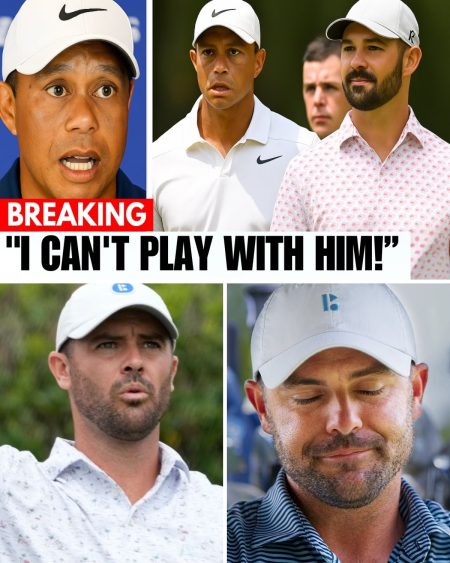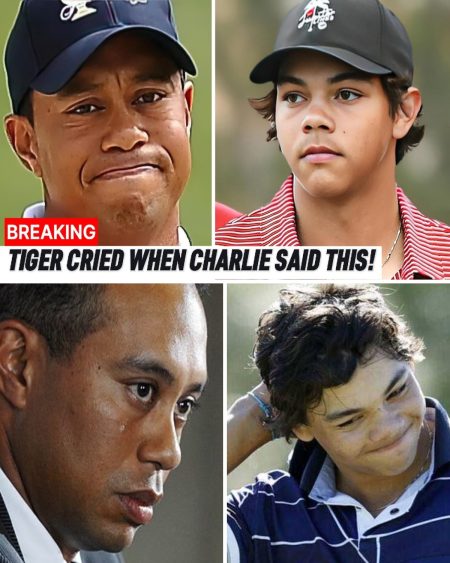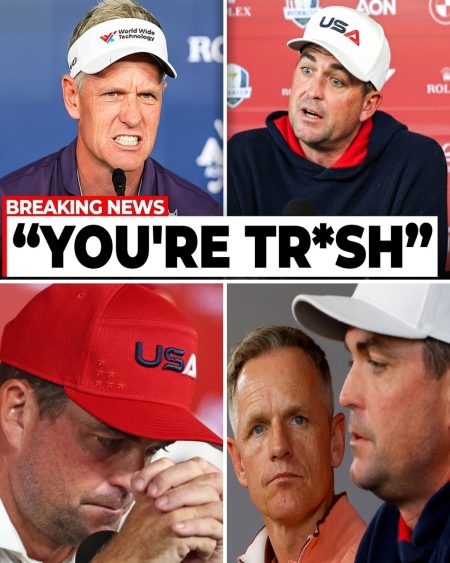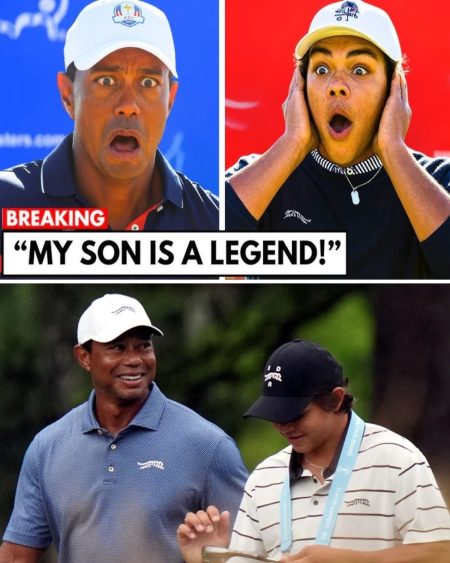In a stunning revelation that has sent shockwaves throughout the sports world, golf legend Greg Norman has exposed the rift between him and his former friends in the golf community, all while fervently defending his controversial league, LIV Golf. Once celebrated as the powerhouse of professional golf, Norman’s new venture is igniting fierce backlash—not only for its clash with the historic PGA Tour but also for its questionable financial ties and its impact on the integrity of the sport as a whole.

Since its inception, LIV Golf has been entangled in a web of controversy. Norman, who ventured into business with aspirations to revolutionize the game, is now facing fierce opposition from many of his once-closely-knit allies. The gulf between Norman and his peers has widened into a chasm, resulting in former friends openly condemning him for his bold, business-driven maneuvers. LIV Golf’s shaken foundations serve as a microcosm of the greater turmoil within the golf community—a community that has seen players, fans, and long-standing traditions faced with a stark crossroads.
At the core of LIV Golf’s radical restructuring lies a new team system that starkly deviates from the traditional individualistic nature of golf. In a format more akin to that of professional football or basketball, players will engage in team play, an alien concept for a sport built on personal performance. However, the criticism comes when golfers with lackluster displays walk away with staggering earnings, leading many fans to scratch their heads in bewilderment about what the game has come to. With prize money that could rival a king’s ransom on the line, the value once associated with hard-earned victories is rapidly eroding.
The allure of financial incentives has proven irresistible for some in the professional ranks, as LIV Golf successfully snatched away some of the PGA’s biggest stars. While Greg Norman may argue that it’s all in good business, the PGA has found itself reeling from the departures of its cherished players. Iconic golfer Tiger Woods publicly rejected an astonishing billion-dollar offer to switch to LIV Golf, branding Norman’s initiatives as damaging to the fabric of professional golf. “I think Greg Norman has to go,” Woods boldly proclaimed, alluding to the disruptive lawsuits between LIV Golf and the PGA that have created an atmosphere of animosity.
To be clear, the influx of enticing contracts provided by LIV Golf represents a stark ultimatum facing athletes: take the lucrative offers and abandon the traditional ideals of loyalty and meritocracy that have long defined the sport. As some golf stars opt to chase the dollar signs, longtime PGA enthusiasts are left feeling betrayed—not only by the players leaving but by Norman himself, who has seemingly turned his back on the league that once made him a household name.
Critics argue that Norman is not just altering the competitive landscape but is creating a culture of division within the fan base, alienating scores of traditionalists who have followed the game for generations. His disruptive approach has resulted in a palpable unease, as fans worry that the diverging interests of various leagues may ultimately dilute the sport’s viewership and revenue streams. The sense of allegiance that once kept the golf community united appears to be fraying at the seams.
Moreover, Norman’s dealings have raised ethical eyebrows, particularly concerning the Saudi Arabian backing of LIV Golf. With a backdrop of Saudi Arabia’s controversial human rights record and ties to political scandals, fans are grappling with significant moral dilemmas surrounding the league’s funding sources. Norman’s off-hand remarks regarding these issues underscored how indifferent he seems to the gravity of his league’s backing, further alienating fans who cannot reconcile their enjoyment of the sport with the ethical implications it now carries.
In full view of the mounting backlash, Norman emerged undeterred, cementing his position as a tactician willing to risk reputational damage for the sake of profit. Despite the swirling controversy, he has doubled down on his business endeavors, ignoring the turmoil surrounding the negative perceptions of his choices. This determination stands in stark contrast to the moral outrage expressed by many fans—and even more concerning, by human rights organizations now focusing their efforts directly on Norman due to the ongoing ties between his league and dubious entities.
The relentless anger directed toward Norman was only fueled when he faced scrutiny over horrific events in Saudi Arabia, including the gruesome murder of journalist Jamal Khashoggi. His response was largely dismissed as callous. Rather than expressing horror or shock at such travesties, he instead deflected by emphasizing Saudi achievements, a move that left fans questioning his ethics and integrity. With such heinous acts overshadowing the beauty of the sport, golfers and fans alike are no longer able to view Norman and LIV Golf through a neutral lens.
The resulting split in perceptions has manifested in deep-rooted resentment toward Norman. Beyond being branded a traitor by former allies, some fans are wondering if the actions of LIV Golf are slowly compromising their love for the sport itself. The sentiment towards Norman is heavy with disdain, as many see no justification for engaging in a business that betrays the very principles that have long defined professional golf.
In this unprecedented moment for golf, the stakes have never been higher. The growing animosity between factions threatens the future of a sport once grounded in integrity, showcasing a profound transformation that may define the essence of golf for generations to come. As the drama unfolds, all eyes remain fixated on Greg Norman and LIV Golf—will he become the villain in his own story, or will he reverse the tide and unify a sport threatened by division?
As fans and players alike grapple with these existential questions, one thing is clear: the fallout from Norman’s bold decisions will reverberate through the golf community for years to come, marking a dark chapter in the sport’s storied history. The question now hangs heavily in the air—can this fracture ever heal, or are we witnessing the start of a new era, one where loyalty, ethics, and tradition are sacrificed at the altar of profit?





